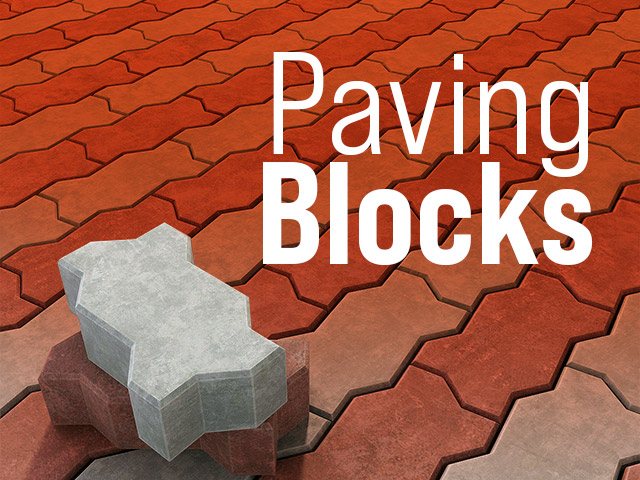
Paving Blocks has been steadily increasing in the construction industry over the past twenty-five years. Its potential is quite high as it offers many possibilities for all areas such as city planning, architecture, and landscape. In this article, we will examine different types of paving stones and their unique advantages.
Paving Blocks is a building material that is often applied especially on garage roads of private properties. Basically, they can be seen as much smaller versions of large concrete blocks.
Why Paving Blocks Should Be Used?
Paving blocks can be manufactured using clay, concrete, and natural stones, expressed as aggregates. They are generally used in the construction industry for siding purposes. They have been preferred because of both their aesthetic attractiveness and ease.
- Scientific research has proven that paving blocks can absorb any kind of weight and create a safer environment.
- They can be applied very easily and do not require much maintenance. In case of any damage to the blocks, it is sufficient to replace only the damaged parts.
- The materials used in its manufacture are easy to find and cost-effective.
- They are structural elements that can easily adapt to any environment with many different design and size options.
Let’s give some details about the types of paving blocks that have different features.
Types of Paving Blocks
1. Clay Brick Pavers
Clay bricks produced by baking in ovens are slab elements that have been used since very old years. The standard sizes of these products are easily available on the market.
These dimensions are as follows:
- 60 x 60 mm – Cobblestone
- 150 x 150 mm – Paving stone
- 300 x 300 mm – Tile stones
Apart from these standard sizes, it is possible to find or manufacture in other sizes.
2. Natural Stone Pavers
Natural stones have recently become materials that are easier to find on the market than in the past. Although the cost has decreased with the increase in distribution opportunities, making these stones ready for use is more expensive than other types of paver as it causes extra cost.
Many natural stones such as granite, sandstone, siliceous stones are extracted from the quarries and their unique appearance is used to create a natural environment.
3. Concrete Paving Block
Cement-blended concrete blocks offer options to be produced in different colors, non-standard shapes and desired sizes. Thanks to concrete pavers, it is possible to make blocks that look like clay brick or natural stone.
Standard concrete paving blocks are 200 mm in length, 100 mm in width and 50 mm – 100 mm in depth. It is also possible to manufacture different paving blocks sizes.
Advantages of Concrete Paving Blocks
- Concrete paving blocks have advanced strength. It is resistant not only to pressure, but also to chemicals.
- There are many application areas. They give positive results even in environments suitable for quick wear such as industrial areas, container areas, airports.
- They can be used for the renovation of worn and old areas. This allows the old slab to be used as a base.
